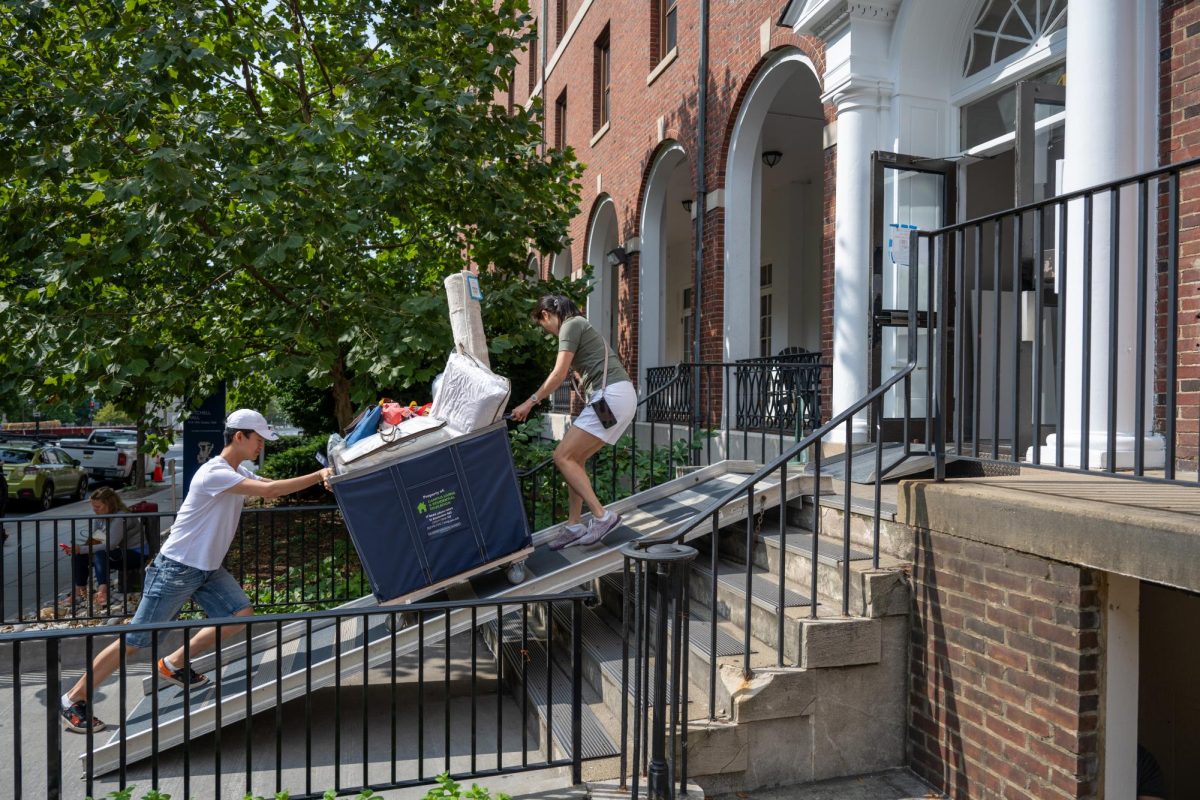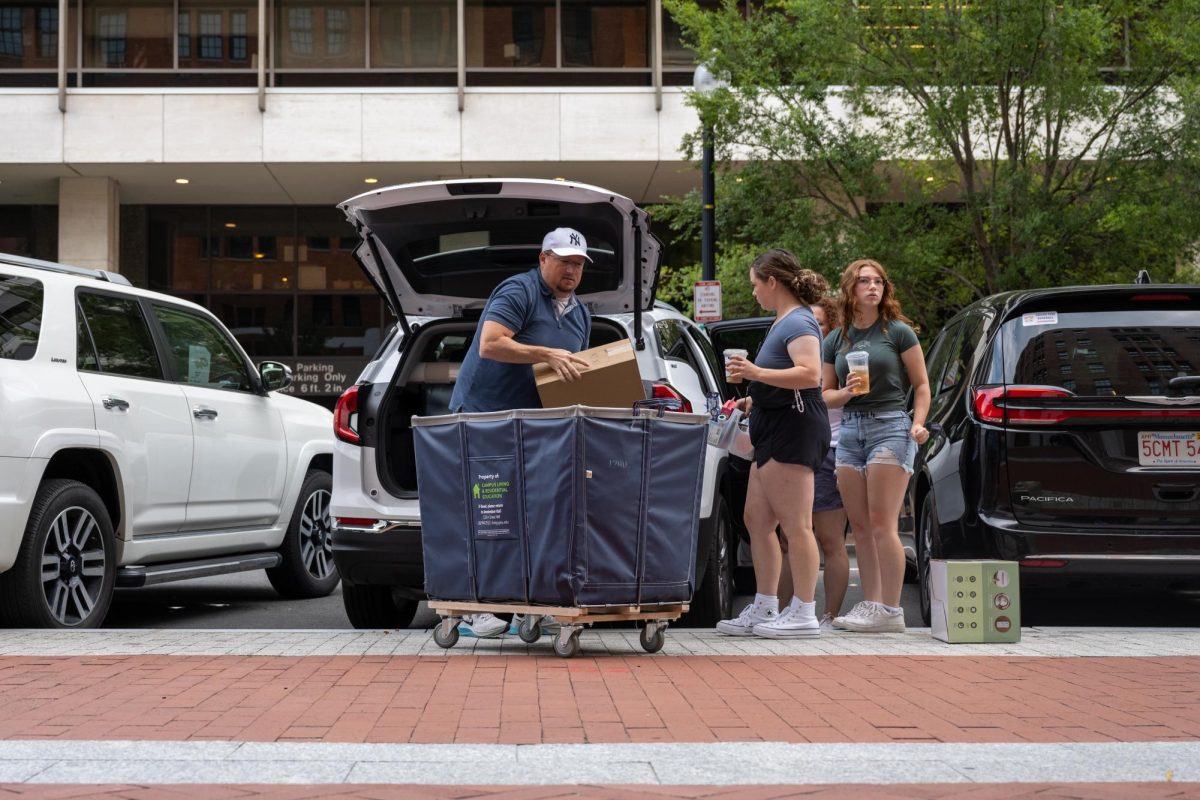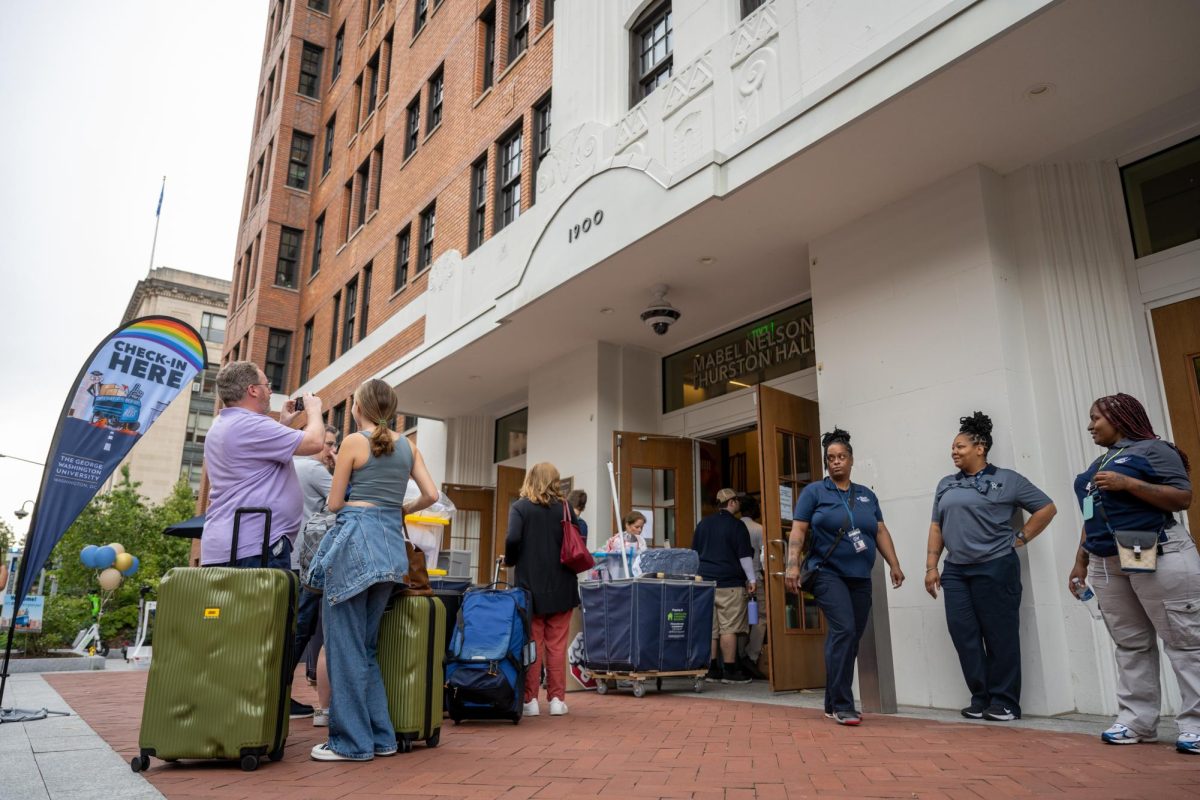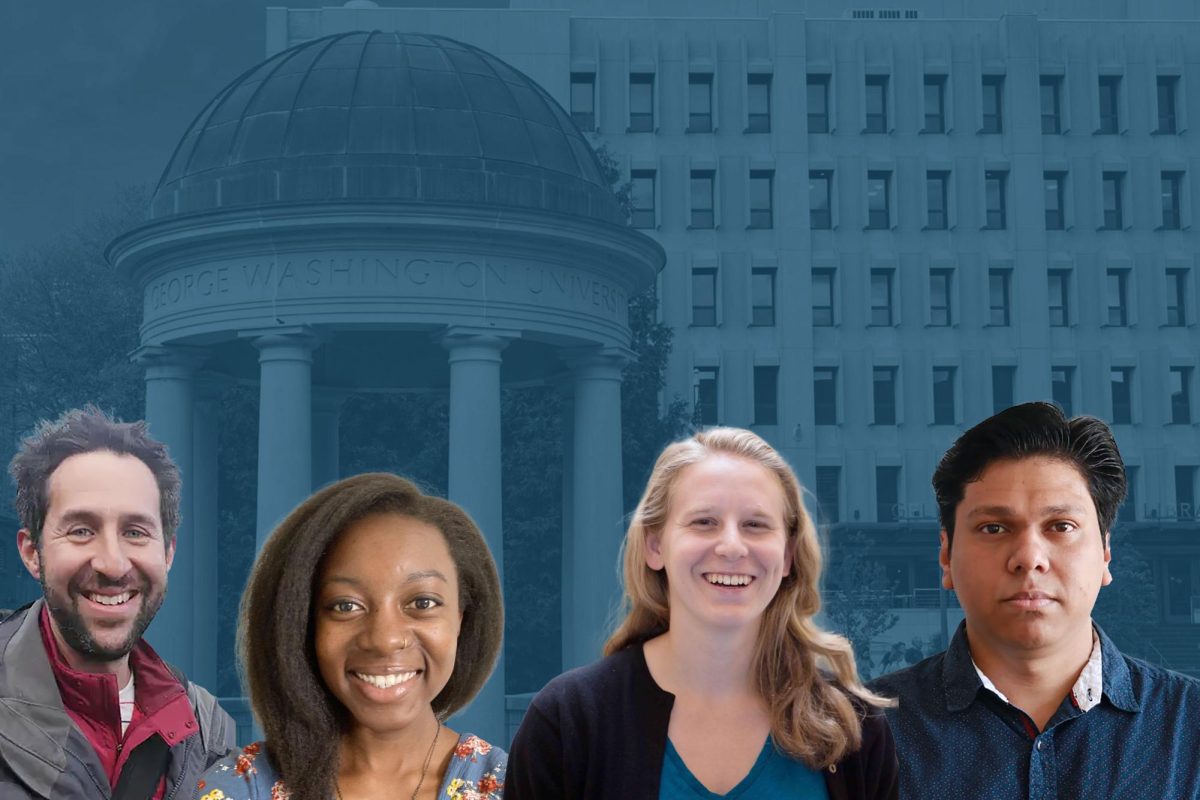Everyone at GW wants to rule the world, the D.C. dating scene is dismal and people are constantly exploring the neighborhoods outside Foggy Bottom. At least, that’s the impression you’d get if you talked to the University’s newest batch of incoming first-year students.
There’s only so much that one can glean from the photos of smiling students lounging in Kogan Plaza on GW’s website and tales from alumni family members reliving their glory days on campus — sometimes, the impressions of incoming students moving to campus for the first time are different from the reality of life at GW. As tearful parents loaded floor-length Target mirrors and overflowing boxes into blue carts this weekend, The Hatchet spoke with incoming first-years to hear their expectations and possible misconceptions of the school they’ll call home for the next four years.
Hanna Sayyar, an incoming cognitive neuroscience student, said she imagines lots of GW life revolving around its location in the middle of D.C. She said she chose to settle into life in a “busy city” because of all the events in the District and imagines that the central location will make the University environment more political.
“I think it’s more politically involved than the average school just because of where it is,” she said.

Miduo Sun, an incoming international affairs student, said political involvement is what landed her at GW. She said after researching GW, she thinks that most of the University will be filled with people who, like her, want to learn about every angle of politics.
“I feel like that’s one of GW’s strong suits from what I’ve like researched,” she said.
Nyx Cordero, an incoming political communication student, said they came to GW in hopes of finding a “great environment” for education and to follow in the footsteps of their mom, who got her master’s degree in school counseling from the University. But after hearing bad tales about GW’s dating scene when researching the school online, Cordero said they don’t anticipate falling in love with the University’s romantic prospects.
“I haven’t heard like, great things about dating, but hopefully it’s good when I experience it,” they said.
Cordero said they also don’t envision GW as a huge party school because they haven’t “heard too much” about that scene compared to other universities with more “intense” party culture, but they imagine students still find ways to have fun through joining student groups and organizations based on their interests and exploring the District.
Cora Brennan, who plans to study political science, said she also assumes GW students explore D.C. to the maximum extent — going shopping and trying local restaurants all around the District. She said she expects that the University will be an inclusive environment for positivity around politics, as people try to learn in the center of American democracy, giving students a chance to learn about everything from this year’s elections to ones that happened hundreds of years ago.
“I don’t really know where I put myself in all of that,” she said. “I think that’s kind of why I’m here, so I can educate myself and, like, make a decision that is best for me.”
Incoming accounting student Dean McDonough said he did more research on the social aspect of the school, but he said the main reason he came to the school was GW’s accounting program. He said he expects that Greek life isn’t “big” at GW, but he still believes the party scene overall to be “about average.” More than 1,300 students are involved in Greek life at GW out of about 10,800 total, according to the GW Fraternity and Sorority Life website.
McDonough said he anticipates more of the social action at GW will come from people visiting every corner of the city — museums or restaurants or anything in between.
“I’m sure they love to see all the history and all the museums here,” he said. “There’s great places to eat around. So I think just enjoy the city and all it has to offer.”





